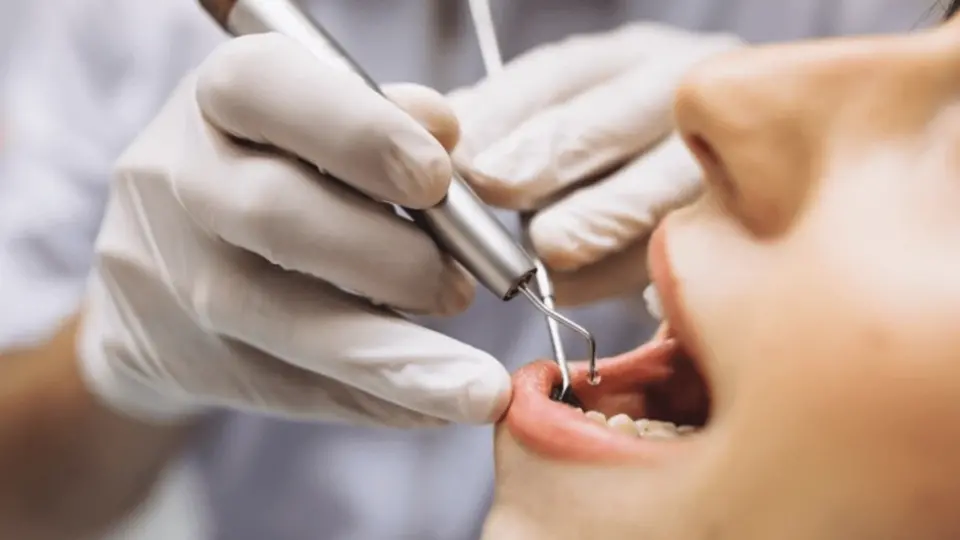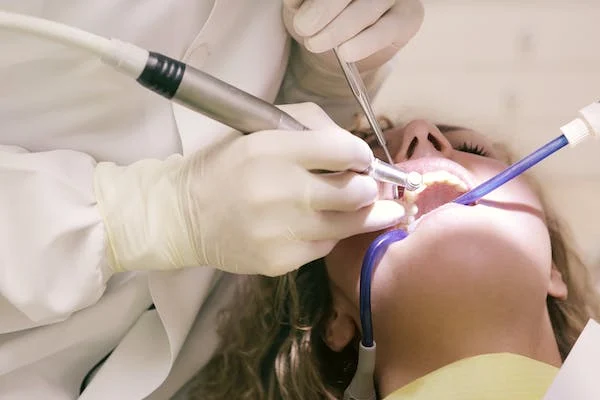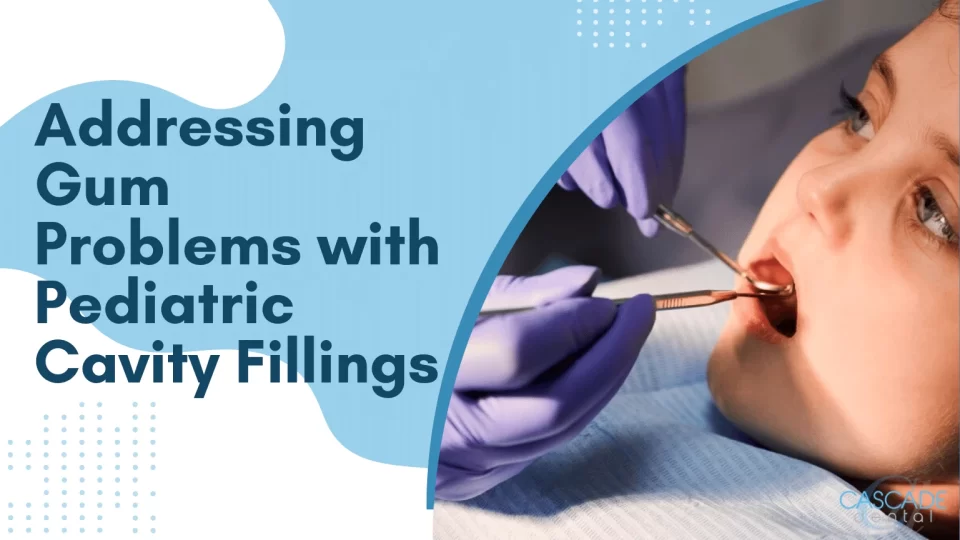A trip to the dentist might seem like a basic chore on the parenting checklist. Brush, floss, get a sticker, done. But there’s more happening in that tiny exam room than most of us realize.
Beyond the fluoride treatments and cavity checks, kids are picking up important social skills that stick with them long after the appointment. They’re learning patience in the waiting room, how to handle nerves in the chair, and even how to communicate with adults outside their family. These small moments teach them how to navigate real-world situations with confidence.
It’s not just about keeping teeth healthy; it’s about giving kids practice in handling life’s little challenges. So the next time your kid hops into that oversized dental chair, know that you’re not just ticking off a dental visit. You’re giving them a quiet lesson in courage, communication, and self-awareness—all wrapped up in a quick rinse and spit.
How Can Regular Dental Visits Help Children Develop Social Confidence?
It might start with a simple “hello” or a shy wave, but each trip to the dentist becomes a new chapter in your child’s journey toward becoming a socially confident individual. Regular dental visits expose kids to a structured, friendly environment where they interact with people outside their immediate family—without the pressure of school or the familiarity of home.
This matters, especially in the early years when kids are still learning how to navigate the world beyond their front door.
Here’s how regular visits help build social confidence:
- Practice Speaking to Adults
Whether it’s answering questions about brushing or being asked how school is going, kids get used to talking to grown-ups in a respectful and relaxed way. - Learning to Be Heard
Dentists and hygienists often speak to children, not just about them with their parents. This makes kids feel seen and encourages them to express themselves. - Becoming Comfortable in Unfamiliar Settings
The dental office, often filled with new sights, smells, and sounds can help children learn to stay calm and confident in other new environments. - Accomplishing Small Tasks Alone
When a child walks to the chair by themselves, answers a few questions, and follows instructions, it boosts their independence and self-assurance.
Over time, these repeated experiences turn what could be a scary or stressful situation into a routine that kids handle with poise and that’s the foundation of real social confidence.
What Social Skills Do Children Commonly Practice During Dentist Appointments?
You might not realize it while flipping through a magazine in the waiting room, but your child is having a mini social development session every time they interact with the dental team. That’s because the dentist’s office is one of the few places where kids are asked to communicate, cooperate, and problem-solve in a real-world setting without it feeling like a test.
Here are the key social skills kids regularly practice at dental visits:
- Greeting and Polite Conversation
From saying “hello” and “thank you” to making eye contact and answering questions, kids learn the basics of polite social interaction. - Listening and Following Directions
“Open wide,” “hold still,” or “turn your head this way”—these simple instructions reinforce attentive listening and the ability to follow through. - Asking Questions
Curious kids often ask things like “What’s that tool for?” or “Why do I need x-rays?” These are early lessons in assertiveness and seeking information respectfully. - Expressing Discomfort or Emotions
Learning how to say “That hurts” or “I feel nervous” helps children articulate feelings instead of acting out or shutting down. - Waiting Their Turn
Time in the waiting room or sitting still in the chair teaches patience and respect for others’ time. - Respecting Personal Space and Boundaries
Dentists gently coach children on staying still, keeping hands away from instruments, and respecting the space needed for treatment—vital lessons in body awareness and boundary respect.
These aren’t just “dental” skills—they’re life skills. Every appointment gives kids a safe, supportive environment to rehearse these behaviors, which naturally transfer into school, playdates, and everyday conversations.
Why is the Dentist’s Office Considered a Valuable Setting For Early Social Learning?
Unlike a playground or classroom, the dental office offers a structured, one-on-one setting that’s perfectly suited for social learning. It’s calm, there’s a predictable routine, and—here’s the best part—the adults are trained to be encouraging and supportive, especially with younger patients.
Kids thrive in environments where they feel safe but are also gently pushed out of their comfort zones. The dentist’s office does this beautifully.
Here’s why the dental setting works so well:
- Familiar but Slightly Challenging
Kids go regularly, so it’s familiar. But it also involves interacting with people they don’t see every day, which helps build adaptability. - Consistent Positive Reinforcement
Dental teams praise good behavior and courage (“You did great!” “You were so brave!”), which helps build confidence. - Adult Role Models Outside the Family
Kids get to see other adults who are kind, patient, and caring which are important when forming social templates beyond parents or teachers. - Teachable Moments in Real-Time
Whether it’s reminding them to say “please” or helping them handle fear, the dentist’s office provides immediate, real-world lessons with instant feedback. - A Place to Practice Being “Grown Up”
For many children, sitting in the dental chair alone is one of their first moments of being treated like a big kid—an experience that gives a huge boost to maturity and independence.
Dental appointments offer a structured environment for kids to test and grow their social muscles, without the overwhelming chaos of larger group settings.
How Does Interaction With Dental Staff Support A Child’s Emotional Development?
Dentists, hygienists, and front-office staff are more than oral health professionals—they’re also emotional coaches in disguise. The way they speak to children, respond to fear, and celebrate bravery has a big impact on how kids process emotion and build resilience.
Many children experience nervousness or even fear at the dentist—and how that fear is handled can shape their emotional toolkit for life.
Ways dental staff help foster emotional growth:
- Modeling Calmness and Reassurance
Calm tones and kind faces help children mirror those emotions and learn self-regulation in the face of stress. - Normalizing Feelings of Nervousness
When a hygienist says, “It’s okay to be a little scared,” children learn that emotions are valid—not shameful. - Celebrating Bravery, Not Perfection
Encouragement like “You did your best today” helps build self-esteem, even if the visit wasn’t flawless. - Encouraging Verbal Expression Over Acting Out
Children are coached to say how they feel instead of fidgeting or shutting down promoting emotional intelligence. - Consistent and Positive Routines
Knowing what to expect each visit helps children feel safe, giving them a chance to focus on learning and communicating rather than just coping.
Over time, this kind of interaction helps children become more emotionally aware, resilient, and expressive. It teaches them that it’s okay to feel scared and that they can get through it with support and courage.
The Dentist’s Office—A Social Development Goldmine in Disguise
So, the next time you take your child in for a checkup, remember, you’re not just caring for their teeth. You’re helping shape a confident, polite, emotionally intelligent little human.
The dentist’s office, with its bright lights and buzzing tools, might seem like an unlikely classroom. But in reality, it’s one of the most unique social environments kids experience on a regular basis. It’s where they learn to speak up, listen closely, handle discomfort, show respect, and trust kind adults outside the home.
In a world full of “teachable moments,” dental visits might just be some of the most impactful—and often overlooked.
Looking for a Family Dentist Who Makes Every Visit a Learning Experience?
At Cascade Dental, we believe that great dental care goes beyond clean teeth. Our compassionate team takes the time to build connections with kids, helping them grow socially and emotionally during every appointment.
If you’re ready to partner with a dental team that sees the whole child, not just their smile. Schedule your visit today. Let’s shape strong, healthy teeth and strong, confident kids together.


